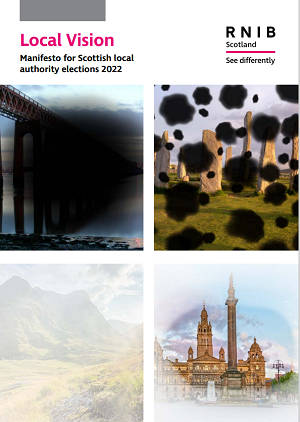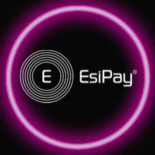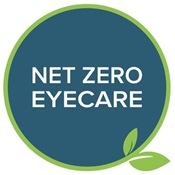Charities & Support Groups
RNIB Scotland calls on newly elected LA to provide a better environment and a new deal for the Visually Impaired.
RNIB Scotland calls on newly elected LA to provide a better environment and a new deal for the Visually Impaired.
Scotland’s leading sight loss charity has called for a new post-covid deal for blind and partially sighted people following the local authority elections on May 5th this year.
The persistent attainment gap between schoolchildren with sight loss and their peers, increasing street clutter and obstacles, inaccessible public information, and a national shortage of trained rehabilitation workers are among worrying issues the charity’s manifesto highlights.

“Scotland’s local authorities play a vital role in helping the country’s 178,000 blind and partially sighted people to live as independently and inclusively as possible,” said James Adams, director of RNIB Scotland.
“People with a visual impairment are more likely to depend on services such as social care and public transport and to look for support from their council. So it’s essential that local authorities fully appreciate the challenges they face.”
The charity’s ‘Local Vision’ manifesto is calling for:
- A halt to ‘shared space’ schemes which level pavements and roads, and for maintaining kerbs and intermittent dropped kerbs, controlled crossings across roads and cycle-lanes, and ensuring safe access to bus-stops.
- Closing the attainment gap for children and young people with a visual impairment – a 2017/18 pupil census found one in five left school without a qualification at National 4 or higher, compared to only one in 50 among their sighted peers.
- Recruit more rehabilitation officers – currently there are only around 2,100 occupational therapists and fewer than 40 active rehabilitation officers working in councils across Scotland.
- Ensure all public communications are available in alternative formats such as audio and braille, and fully accessible online.
- Standardise the registration process for people with sight loss to allow for better planning of health and social care support.

Mr Adams said: “We need services and support especially for people first diagnosed with sight loss, and help to maximise their independence. Information that’s readily available in alternative formats. Public transport that’s accessible. Streets and thoroughfares that allow pedestrians to walk safely without obstacles. And education that allows every child to reach their full potential.
“Our manifesto sets out practical steps that Scotland’s 32 local authorities can take to support those of their citizens who are blind and partially sighted. Our ageing population and the increase in sight-threatening conditions such as diabetes means this number will, inevitably, grow.
“The recent covid uncertainty has given us all a sense of vulnerability, of what it’s like to depend more on others. Let’s make one positive legacy of this a resolve to re-emerge as a society in which no one is left at the margins.
“This is the ‘new normal’ Scotland should aspire to.”
























